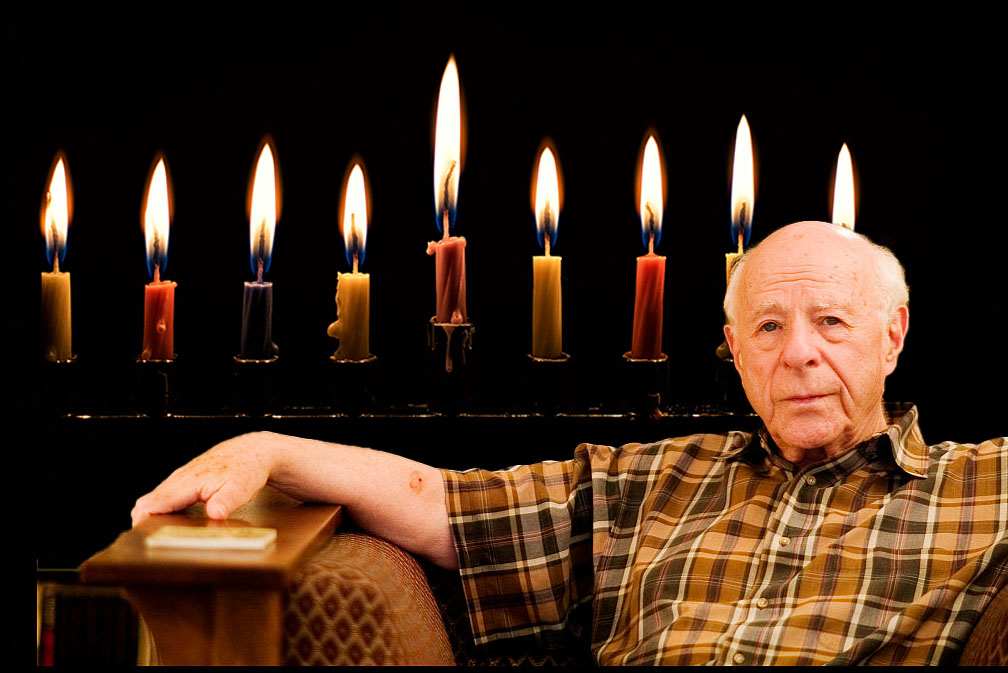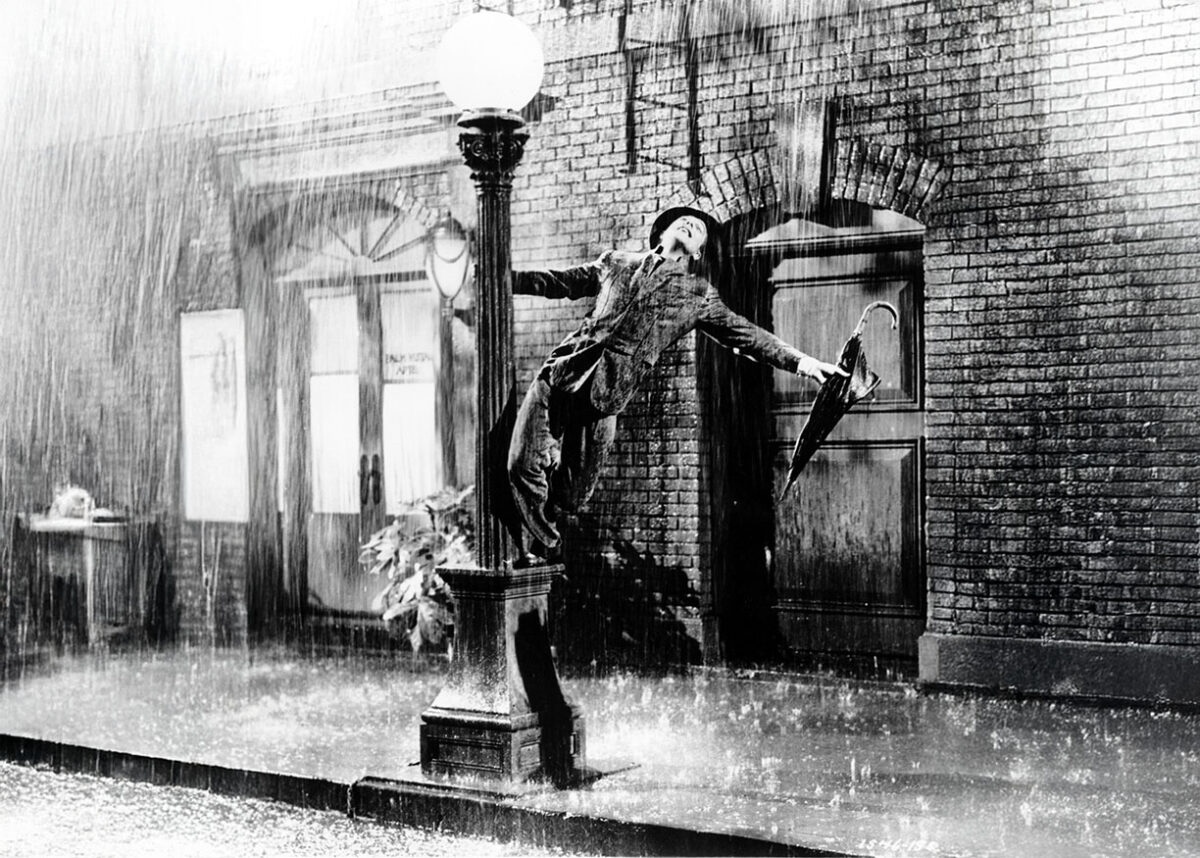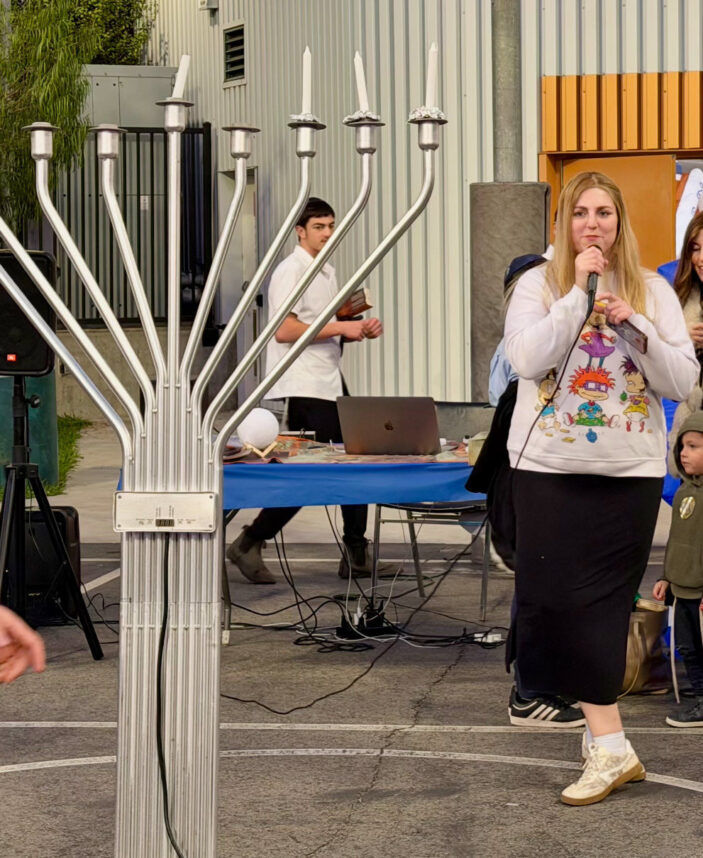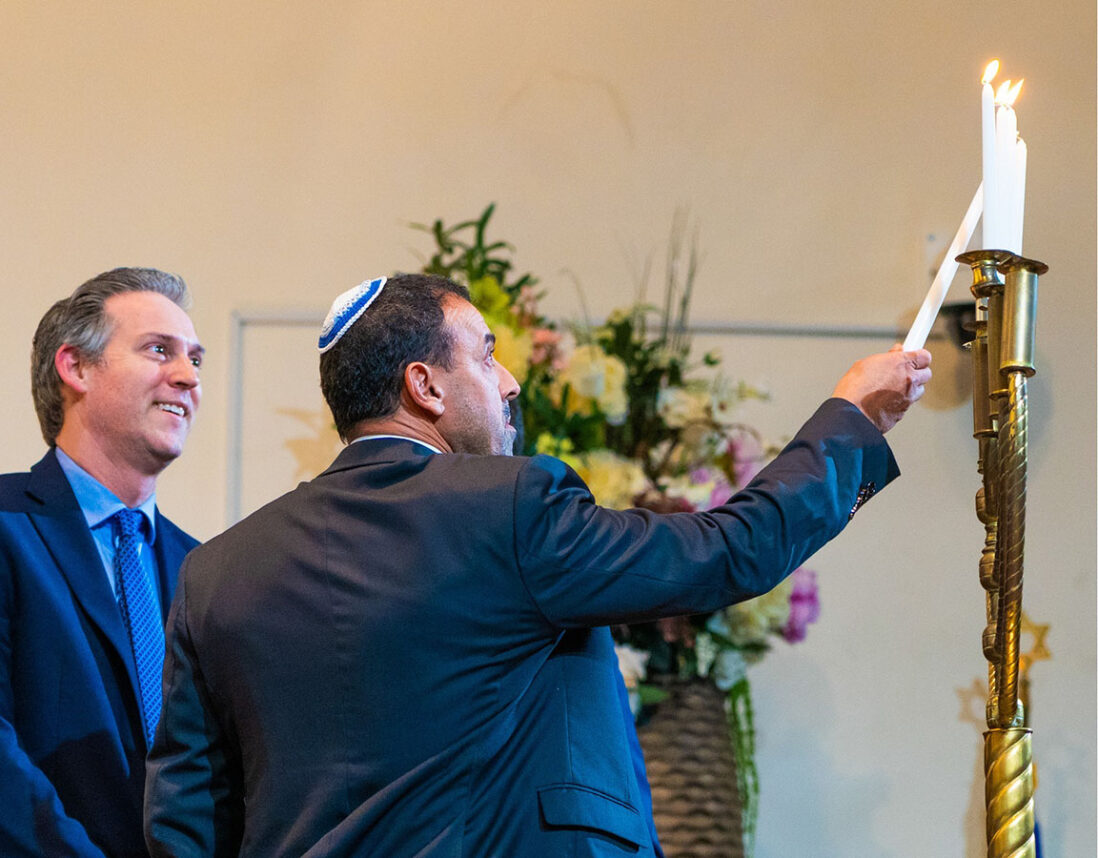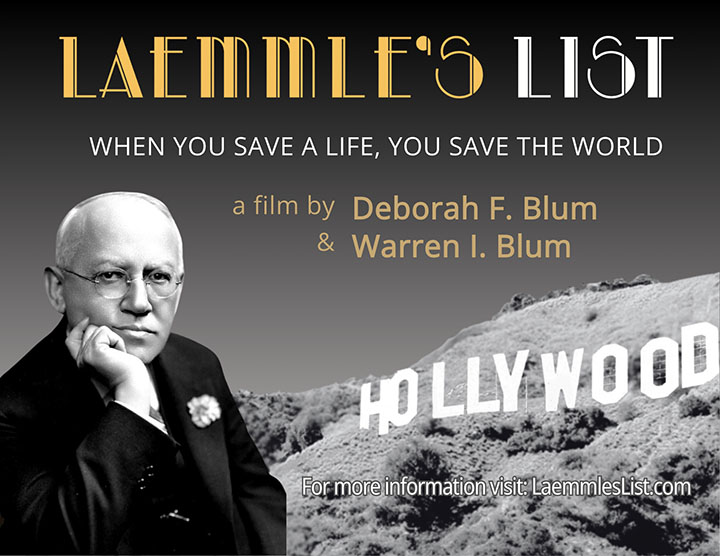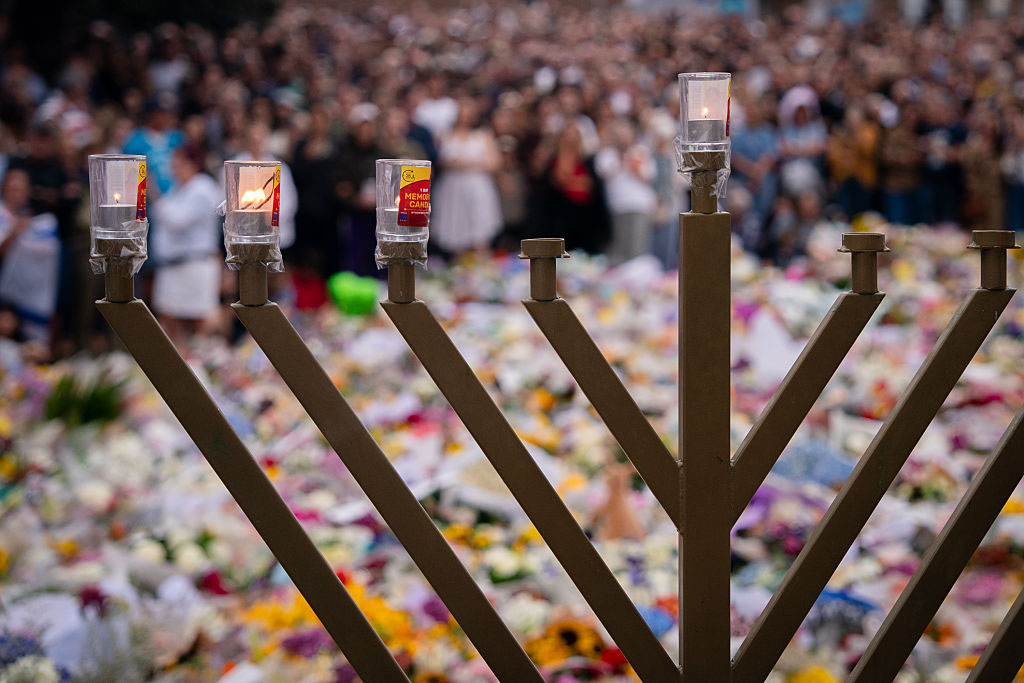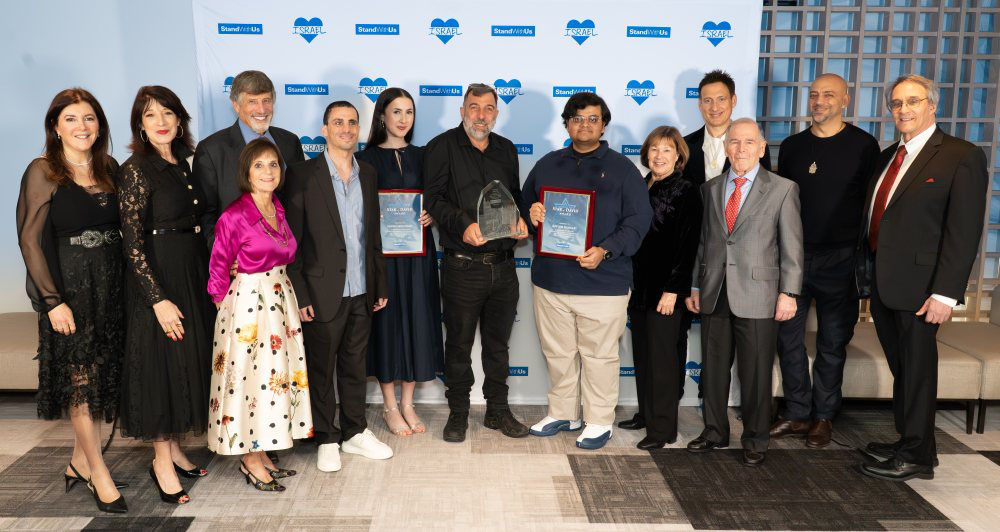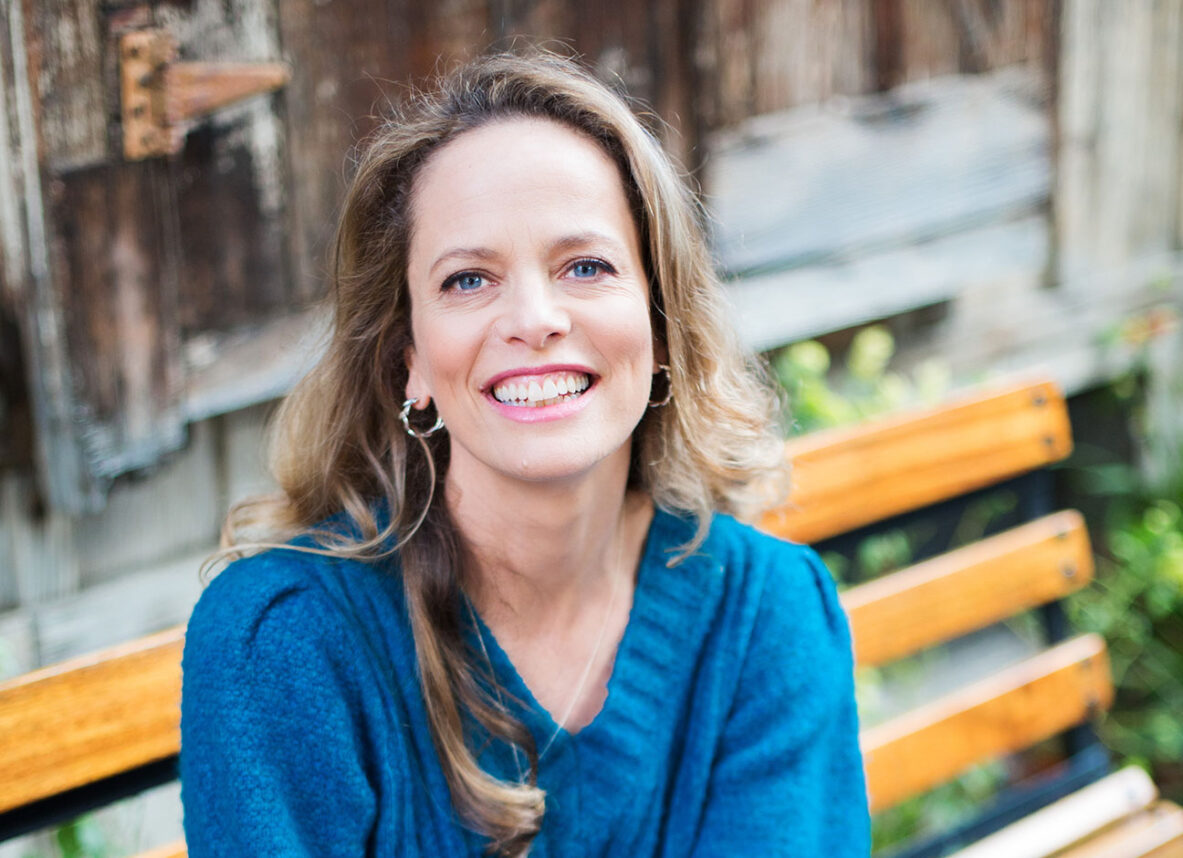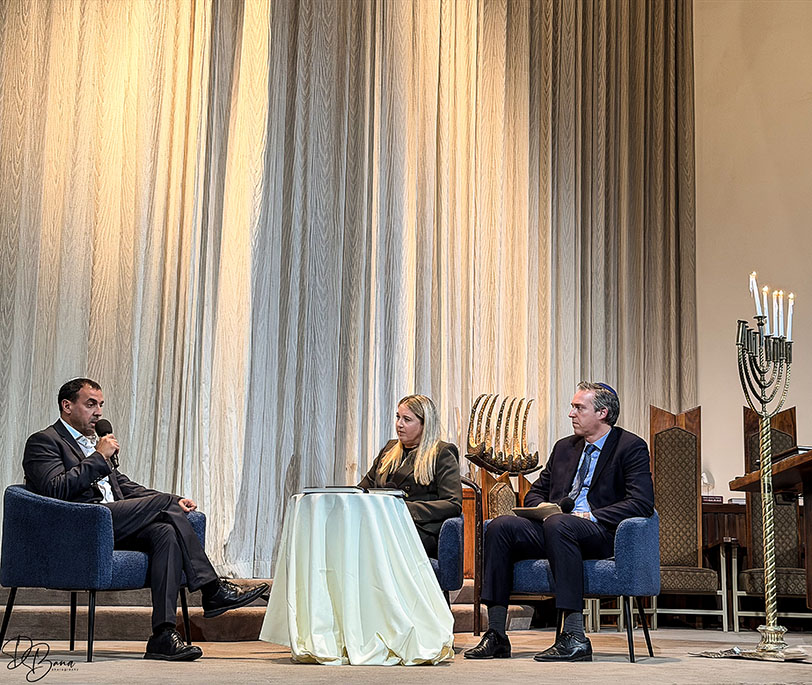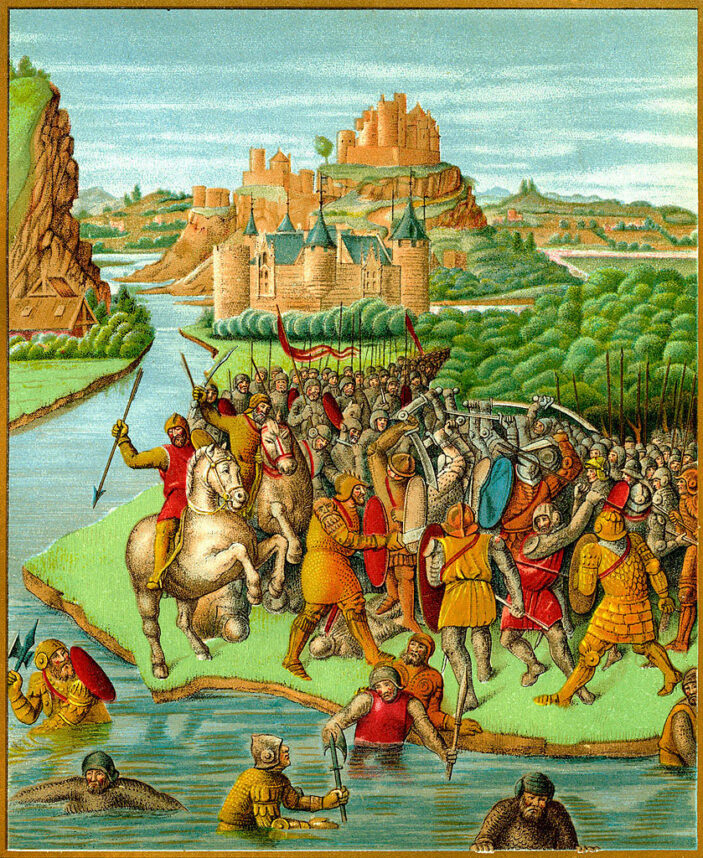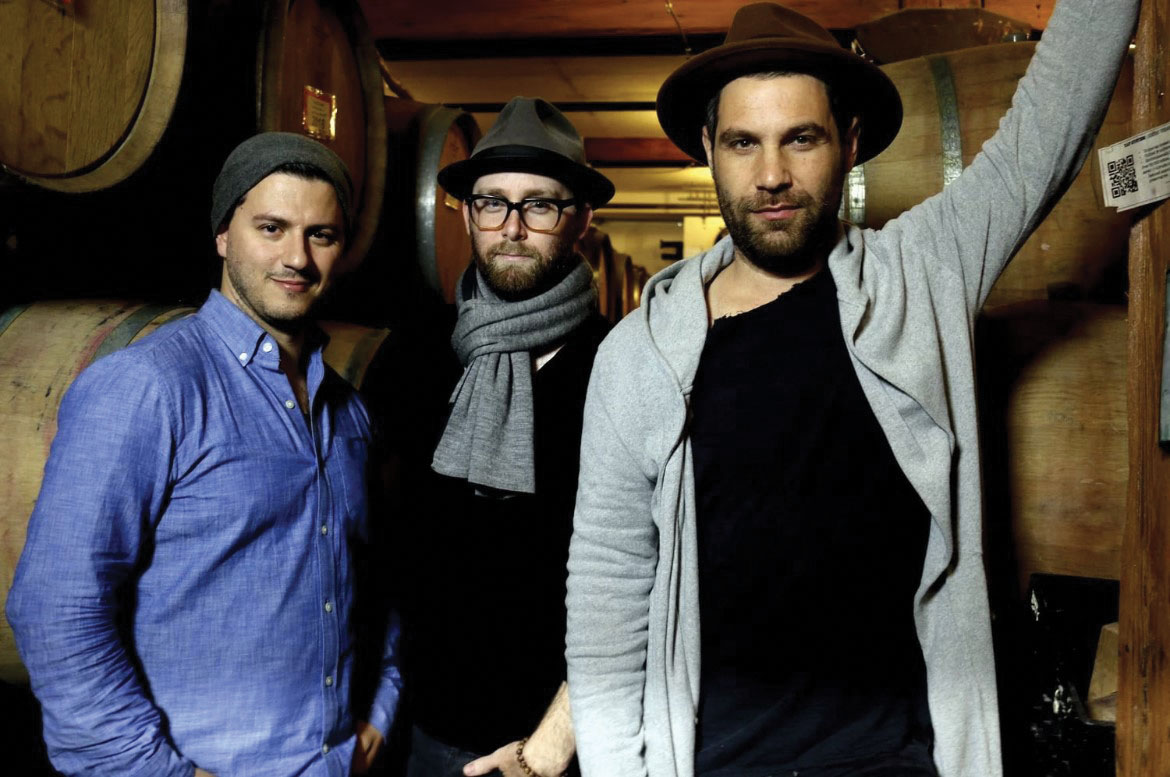Martin Sherman is a hard man to figure out. Is he a street-smart Zionist or a liberal academic? Sherman, who is just finishing his stint as a Schusterman Visiting Scholar of Israel Studies at University of Southern California and Hebrew Union College-Jewish Institute of Religion (HUC-JIR), looks like your classic scholar. He has a doctoral degree in political science and international relations from Tel Aviv University, where he has been teaching since the late 1980s.
But dig a little and you’ll see some weird stuff.
For one thing, he speaks in clear, simple English. You won’t hear any obscure academic jargon designed to impress you from this guy.
But the thing that makes him really weird — and even a little threatening to some of his liberal colleagues — is that he has found a scholarly way of challenging something you never challenge in polite company: the two-state solution.
That’s right, the man doesn’t believe in that hard-rock truism of international discourse: the two-state solution to the Israeli-Palestinian conflict. In today’s world, that’s like saying you don’t believe in feeding hungry babies.
Even for skeptics like me, the furthest we would go is say that a two-state solution is not realistic at the moment; never that it is not desirable.
Sherman makes the case not only that it is not desirable, but that it is impossible.
In a 60-minute PowerPoint presentation that never mentions God, he starts by quoting Sherlock Holmes: “When you have eliminated the impossible, whatever remains, however improbable, must be the truth.”
Why is a two-state solution impossible? He offers an in-depth analysis centered on this simple question: How can anyone guarantee that a Palestinian peacemaker won’t be toppled and that a radical terrorist regime won’t take his place? And with 80 percent of Israel’s population within striking distance of terrorist rockets from the West Bank, who would be willing to take that risk?
To buttress his case, he pulls old quotes from famous peacemakers like Shimon Peres, Yitzhak Rabin and Yossi Beilin. There’s not a whiff of right-wing ideology in his presentation. In fact, there’s no ideology at all. The man bludgeons you with facts, charts, polls, quotes, satellite photos, analyses and logic — lots of logic.
Usually, when a Jew makes a case against the two-state solution, it’s either a right-wing ideologue quoting the Bible or a post-Zionist who believes in “one state for all its citizens.” But a soft-spoken, secular academic who’s a defender of liberal values like freedom of speech, abortion and gay rights? Like I said, weird.
Sherman, who gave me a private viewing of his presentation last week, eventually has to deal with this knotty question: If a Palestinian state is impossible, then what’s the future? An Israeli state without a Jewish majority? What about Palestinian national aspirations?
Again, he uses facts and logic to address every question. He uses the U.N. definition of refugees to reframe the refugee problem. He quotes Palestinian polls showing the absence of enthusiasm for a Palestinian state, contrary to conventional wisdom. He promotes citizenship rights for Palestinians already living in Arab countries, and generous incentives to alleviate the refugee problem.
What is needed, he says, is a new mindset that will “de-politicize the context from the political to the humanitarian.” He says the whole debate has been hijacked by “culturally biased truisms rather than scientifically based truths.”
He doesn’t pretend that his proposal is a perfect solution; only that it’s better than the current path, which he says has “failed history” and has zero probablility of success.
In fact, his whole argument lives or dies on whether you buy into his premise that a two-state solution is impossible. If you buy into it, you will be more open to his so-called humanitarian approach and the many ideas that follow.
Did I buy into it? It’s true that his presentation was compelling, but I don’t have the chutzpah to stand alone and say that a two-state solution is impossible or undesirable. I still need to get my kids married.
But whether one buys into his case or not, it’s hard to conclude that he should be shut out of the debate. He showed me an e-mail from a prominent Reform rabbi on the West Coast who is a major proponent of the two-state solution, and who was quite taken by Sherman’s presentation.
Since I love a good debate, I’d love to see what would happen if his presentation started to spread. This newspaper has already published one of his articles on the subject. Now Sherman wants to get his message out to places like The New York Times and other mainstream media, as well as to opinion leaders and policy makers.
His goal is to raise $5 million to establish at Tel Aviv University an “alternate center of academic wisdom based on factual correctness, not political correctness.” Because he would have the credibility of being nestled in a leftist institution, he says such a center could really reframe the debate on the peace process.
If ever there were long odds on anything, this would be it. He does have a couple of things going for him, though, besides his deep knowledge and an ability to speak clearly.
One, the conventional approach to peacemaking keeps failing. And two, his kids are already married.
David Suissa is the founder of OLAM magazine and OLAM.org. You can read his daily blog at suissablog.com and e-mail him at {encode=”suissa@olam.org” title=”suissa@olam.org”}.















